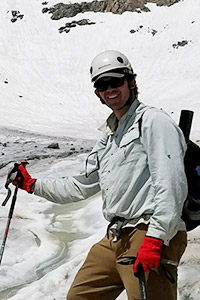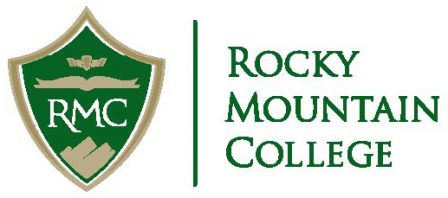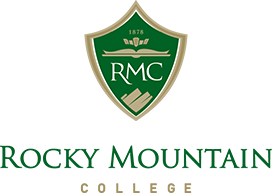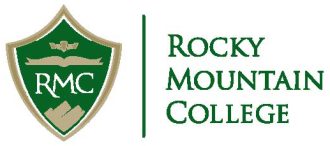Lucas C. Ward
April 27, 2023 2024-01-19 20:12Lucas C. Ward

Contact Information
Associate Professor, Geography
Yellowstone River Research Center
B.A. Whitman College
M.A., Ph.D. University of Colorado - Boulder
Phone: 406.238.7277
Office: Tyler Hall 304
Email: lucas.ward@rocky.edu
Biography
After graduating from Whitman College with History and Spanish degrees, Luke Ward traveled to Paraguay where he lived and worked for three years as a Peace Corps beekeeper. Following Peace Corps, Luke earned a Ph.D. in Geography at the University of Colorado - Boulder. He moved to Rocky Mountain College in 2011.
As a human geographer trained in the multidisciplinary field of political ecology, Luke understands local instances of environmental change to be rooted to local- regional-, and global-scale political economic process. He is especially interested in how different groups of people interpret and respond to environmental change and to policies and projects intended to regulate it. Dr. Ward uses mixed methods in his fieldwork and teaching, including ethnographic field methods, participatory risk mapping, Q method, factor and cluster analysis, thematic content analysis, and case study approaches, as well spatial technologies like GIS, Remote Sensing, mobile mapping, and UAS systems. While he is interested how, why, and to what effects development and conservation projects and policies unfold differently in different parts of the world, his main areas of regional expertise are South America (especially the Paraguay River/La Plata River basin) and the American West.
Watershed Planning in the American West
Dr. Ward’s recent scholarship focuses on water governance and watershed-scale planning in major western watersheds like the Yellowstone and the Missouri as well as in sub-basins like the Big Hole, Stillwater, and Yellowstone. Since 2013, Luke has worked with a team of researchers from other institutions to document ongoing efforts by the Montana Department of Natural Resources (DNRC) and other groups to develop stakeholder-driven plans for managing the land and water in Montana’s four major watersheds during conditions of future scarcity (i.e. drought). In 2013, Dr. Ward’s team was contracted by the DNRC to execute the ‘scoping’ phase of this endeavor in the Yellowstone River watershed. In this capacity, the team was given unique access to -- and, in fact, was part of -- the various processes and world views involved in watershed planning and resource management in the region (See Gilbertz, Hall, and Ward 2013). Findings from this research have been presented at conferences of the Montana Association of Water Resources Association (2013) and the Center for Great Plains Studies symposium (2014). Articles have been published in Geoforum (2016 and 2017,) Environmental Politics, and the Journal of Cleaner Production. A fifth manuscript is in the final stages of revisions (target journal: Annals of the Association of American Geographers).
Environmental Governance in South America
Luke’s fieldwork in Paraguay focuses on two related processes: 1) how global models of good environmental governance – specifically, “Integrated Resource Management” (IRM) – get translated into action by governmental and non-governmental resource management professionals in a place like Paraguay; and 2) how the indigenous Yshyr (“eesh-eer”) and mestizo residents of Paraguay’s portion of the Pantanal Wetlands experience their country’s transition toward this market-oriented approach to environmental rule-making as it relates to water laws and management of public spaces (national parks). Findings from this fieldwork have been presented at conferences of the Association of American Geographers (2009, 2010) and at the International Society for the Scientific Study of Subjectivity (2010), and published by the journal Geoforum (2013).
Field-Based Service Learning with Undergraduates
Luke firmly believes that field experiences, particularly those with a research component involving extra-institutional partners, are fundamental to the training of sustainability scholars and professionals. He is a founding member of the Yellowstone River Research Center (YRRC), an interdisciplinary research institute formed in 2012 to promote field-based research opportunities for undergraduates while simultaneously generating baseline data on the social and environmental dimensions of ongoing changes in and around the Yellowstone River watershed. Luke and an undergraduate student recently published a manuscript based on a YRRC research project --which used Q method to analyze Montanans’ views on Greater Sage-Grouse management -- in Wildlife Society Bulletin. Another of Luke’s students presented the results of his GIS-based investigation into the ownership status of islands in the Yellowstone River at the Montana American Water Resources Association in October of 2016 as well as at meetings with Montana Fish Wildlife and Parks and the Yellowstone Conservation District Council.
Courses Taught
- GPY 118: Montana Rivers
- GPY 102: Regional Geography of Landscape Change
- GPY 224: Environment & Society
- GPY 226: Energy & Society
- GPY 302: Geography of International Development
- GPY 321: Introduction to Geographic Information Systems
- GPY 322: Remote Sensing
- GPY 411: Applying Geographic Skills and Knowledge: Problem Oriented Geography (capstone)
- ECO 354 - Environmental Economics
- ESC 496 - Research Analysis
- ESC 215 - Fast Food Nation
Contact
Rocky Mountain College
1511 Poly Drive
Billings, MT 59102


